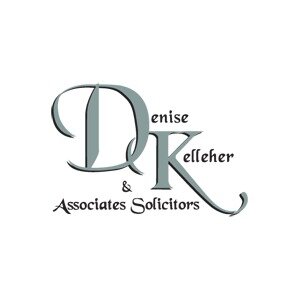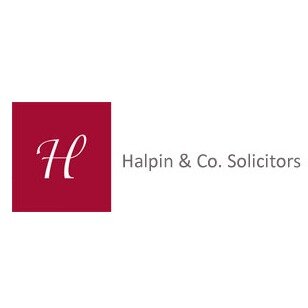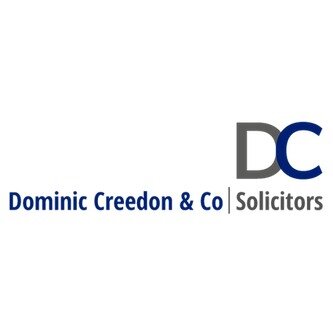Best Conveyancing Lawyers in Cork
Share your needs with us, get contacted by law firms.
Free. Takes 2 min.
Free Guide to Hiring a Real Estate Lawyer
List of the best lawyers in Cork, Ireland
About Conveyancing Law in Cork, Ireland
Conveyancing in Cork, Ireland refers to the legal process of transferring property ownership from one person to another. This process can involve residential or commercial properties and includes drafting contracts, conducting searches, addressing legal queries, and registering the new ownership with the Property Registration Authority. The Cork property market is dynamic and can have its own unique challenges, but the key objective of conveyancing is to ensure all legal obligations are met so that your rights are fully protected throughout the transaction. Conveyancing is governed by Irish law, which applies both to buyers and sellers operating in the Cork region.
Why You May Need a Lawyer
Engaging a solicitor for conveyancing is highly recommended to avoid common pitfalls and ensure your interests are represented. You may need a conveyancing lawyer in Cork if you are buying or selling a home, transferring property between family members, remortgaging, or dealing with a property as part of an inheritance or divorce. A solicitor will perform due diligence such as checking title deeds, reviewing contracts, handling deposits, resolving boundary issues, and guiding you through complex local regulations. Without expert advice, costly mistakes can occur, including overlooked legal restrictions or unregistered land.
Local Laws Overview
Conveyancing in Cork, as in the rest of Ireland, must comply with key pieces of legislation such as the Land and Conveyancing Law Reform Act 2009, and registration procedures conducted by the Property Registration Authority. Local laws require both parties to agree on contract terms, ensure all relevant searches (title, planning, zoning, local authority searches) are completed, and follow protocols regarding stamp duty and registration fees. Properties in Cork may fall within areas subject to specific planning or zoning restrictions, so local expertise is vital to uncover any hidden issues. The law also requires the proper discharge of existing mortgages or loans on the property prior to final transfer.
Frequently Asked Questions
What does the conveyancing process in Cork typically involve?
The process usually starts with an offer being accepted, followed by contract drafting, legal searches, title checks, and ends with completion when ownership is officially transferred at the Property Registration Authority. Your solicitor will guide you through every step.
How long does conveyancing take in Cork?
Conveyancing normally takes between 6 to 12 weeks but can be longer if there are complications like slow searches, planning issues, or delays in mortgage approval.
Can I do my own conveyancing?
While it is legally possible, it is highly discouraged unless you have experience with Irish property law. Most mortgage lenders also require a qualified solicitor to manage the legal work.
Are there different rules for new builds and second-hand properties?
Yes, new builds often require further checks such as compliance with modern planning conditions, building warranties, and review of the new home’s specifications, while second-hand properties focus more on title history and past modifications.
What costs are involved in conveyancing?
Costs include the solicitor’s fees, search charges, registration fees, and stamp duty (a government tax on property purchases). Your solicitor should provide a detailed fee estimate at the outset.
What searches will my conveyancing solicitor carry out?
Typical searches include confirming legal title, boundary checks, local authority searches, planning history, environmental searches, and confirming any restrictions or rights of way.
What is stamp duty, and who pays it?
Stamp duty is a tax collected by the Revenue Commissioners when property is transferred. The buyer is responsible for paying this fee, and it is calculated as a percentage of the property’s value.
Can issues like unpaid management fees affect my purchase?
Yes, outstanding management fees or other liens can impact the sale and must be settled before completion. Your solicitor will check for such issues during the process.
Is it different if I am buying a property as an investment or to let?
Additional considerations apply, including compliance with landlord regulations, rental zoning, and potential tax obligations. Discuss your intentions with your solicitor early for tailored advice.
What happens after the purchase is complete?
After completion, your solicitor will register your ownership with the Property Registration Authority, pay stamp duty, and provide you with the final documentation confirming you are the legal owner.
Additional Resources
- Property Registration Authority: Handles registration of ownership documents. - Law Society of Ireland: Provides information on finding a qualified solicitor. - Citizens Information: Offers general information on buying and selling property. - Cork County and City Councils: Local authority offices for planning applications and zoning information. - Revenue Commissioners: Information on stamp duty and property taxes. These organizations can provide helpful guidance or documentation relevant to your property transaction.
Next Steps
If you are considering buying, selling, or transferring property in Cork, Ireland, your next step should be to consult a qualified local solicitor who specializes in conveyancing. Gather any property documents you may have, outline your objectives, and be ready to provide identification for anti-money laundering checks. Request a written quote for fees and ask about the likely timeline based on your specific situation. If you have questions or concerns at any stage, do not hesitate to discuss these with your solicitor-open communication can help ensure a smooth conveyancing process from start to finish.
Lawzana helps you find the best lawyers and law firms in Cork through a curated and pre-screened list of qualified legal professionals. Our platform offers rankings and detailed profiles of attorneys and law firms, allowing you to compare based on practice areas, including Conveyancing, experience, and client feedback.
Each profile includes a description of the firm's areas of practice, client reviews, team members and partners, year of establishment, spoken languages, office locations, contact information, social media presence, and any published articles or resources. Most firms on our platform speak English and are experienced in both local and international legal matters.
Get a quote from top-rated law firms in Cork, Ireland — quickly, securely, and without unnecessary hassle.
Disclaimer:
The information provided on this page is for general informational purposes only and does not constitute legal advice. While we strive to ensure the accuracy and relevance of the content, legal information may change over time, and interpretations of the law can vary. You should always consult with a qualified legal professional for advice specific to your situation.
We disclaim all liability for actions taken or not taken based on the content of this page. If you believe any information is incorrect or outdated, please contact us, and we will review and update it where appropriate.















